News Archive 2021
School news from 2021.

MAKING A JUST SOCIETY
Sustaining the Momentum
Edited by M. Amah Edoh, MIT Professor of Anthropology and Liliane Umubyeyi, co-founder, the African Futures Lab
What will it take to sustain the momentum of movements for racial justice sparked in 2020? Ideas in a new essay collection co-edited by Amah Edoh, MIT Professor of Anthropology, and Liliane Umubyeyi, co-founder/co-director of the African Futures Lab.

AWARDS AND HONORS
Three MIT SHASS faculty receive inaugural Fang Fund awards
Funding will support projects by Fotini Christia (political science); Martin Hackl (linguistics); and Graham Jones (anthropology).
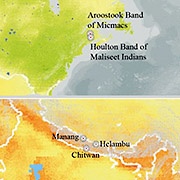
SOLVING CLIMATE
Conversations at the Frontline of Climate Change
Novel communications infrastructure from the MIT Civic Design Initiative aims to support communities on the frontlines of the climate crisis.
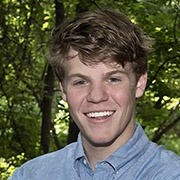
MEET THE MIT BILINGUALS
Ryan Conti '23 | Math/CS + Philosophy of Language
Preparing for a career advancing the science and policy of climate issues, Ryan Conti '23 focuses on math, computer science, and the philosophy of language.
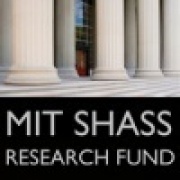
HONORS AND AWARDS
Six faculty receive MIT SHASS Research Fund awards for 2022
The SHASS Research Fund supports research in the Institute's humanities, arts, and social science fields that shows promise of making an important contribution to the proposed area of activity.
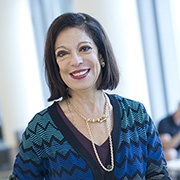
SOLVING CLIMATE
Can the world change course on climate?
A Conversation with Professor Nazli Choucri
MIT Political scientist Choucri discusses challenges and hopes for global coordination on sustainability and climate issues — and the role of political science in the process.
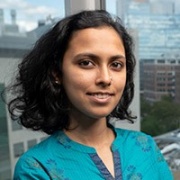
MEET THE MIT BILINGUALS
Rujul Gandhi ’22 | Linguistics + Computer Science
With her double major Gandhi works to surmount language and cultural barriers, globally and on campus.
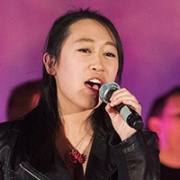
MEET THE MIT BILINGUALS
Madeline Wong ’21 | Music + EECS
Wong, a double major in music and EECS, boosts signal processing of ConcertCue, an app that infuses concerts with performance insights.
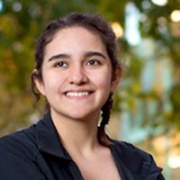
MEET THE MIT BILINGUALS
Ana Reyes Sanchez '22 | Mathematics + Philosophy
An aspiring human rights lawyer, Ana Reyes Sanchez is drawn to issues involving ethics, decision-making, and rationality.
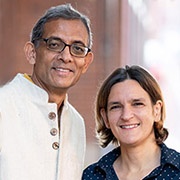
INSIDE THE CLASSROOM
The power of economics to explain and shape the world
In 14.009, a first-year class taught by Nobel laureates, MIT students discover how economics helps solve major societal problems.
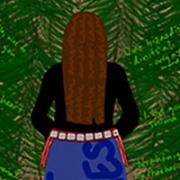
MAKING A JUST SOCIETY
Exploring cultural inheritance
In a unique IAP workshop, MIT students explore and honor their personal histories
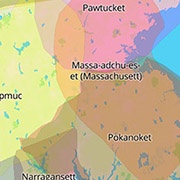
MAKING A JUST SOCIETY
Indigeneity at MIT | A Conversation with David Shane Lowry '03 ('07)
Dr. Lowry is the Distinguished Fellow in Native American Studies at MIT, tasked with leading a conversation at MIT about the actions and responsibilities of the Institute in the history and current realities of Native American communities. A member of the Lumbee Tribe who trained as an anthropologist at MIT, Lowry focuses his research on people and institutions that impact personal and cultural healing.
BE YOUR WHOLE SELF AT MIT
The Power of the Humanities, Arts, and Social Sciences at MIT
"From climate change to poverty to disease, the challenges of our age are unwaveringly human in nature and scale; and engineering and science issues are always embedded in broader human realities, from deeply-felt cultural traditions to building codes to political tensions."
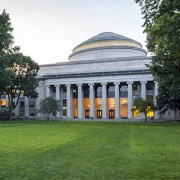
At MIT, the arts, humanities, design, and STEM fields forge an essential partnership
The humanistic fields are vital to solving the world’s most urgent problems. They also help students shape successful careers and meaningful lives, argue Agustín Rayo and Hashim Sarkis in a commentary for Times Higher Education
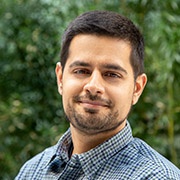
MEET OUR STUDENTS | MIT HASTS
Illuminating deeper histories: Rijul Kochhar
MIT HASTS PhD candidate Kochhar tracks changing global medical and microbial realities. "My job as an anthropologist is to track the ruination of antibiotics in cultural life, and to examine what is being done" about it," says Kochhar. Part of his quest is to resurrect neglected—but successful—techniques of the past in order to help control bacterial life in the present.
BE YOUR WHOLE SELF AT MIT
Gallery | Meet the Bilinguals
100% of MIT undergraduates study both the humanistic and sci/tech fields. And many go much deeper, often earning a degree or minor in a humanities, arts, or social science field, often alongside a STEM degree. Meet some of these students and learn more about their plans for the future.
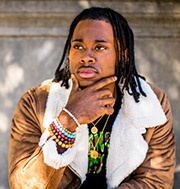
MEET THE MIT BILINGUALS
Brian Williams ’22 | Biological Engineering + Black Studies
Williams is using bioengineering and black studies as a launchpad to combat racism in public health, to use "the toolbox of social justice, pulling the levers of activism, advocacy, democracy, and legislation to improve our social institutions at the root.”

STRENGTHENING DEMOCRACY
Charles Stewart III on elections in a hyper-partisan era
What can Americans do to protect our democracy? "The 2020 election showed the resilience of the fact-based part of the election administration system — election administrators, judges, and research institutions (including universities) — that have stood for the rule of law in the face of illiberal attacks on election administration. Opponents of fair elections recognize this and have attacked all parts of this fact-based bulwark."
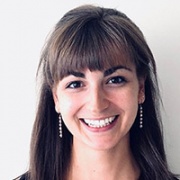
MEET OUR STUDENTS | PHILOSOPHY
Ethics in action: Sophie Gibert
Gibert, a PhD student in philosophy, discusses applying the tools of philosophy to ethical questions, in particular the ethics of health and healthcare.
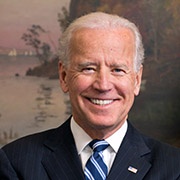
FOREIGN POLICY
Foreign policy advice: Don’t look back
The Biden administration must navigate a new set of global challenges, experts say in MIT panel discussion.
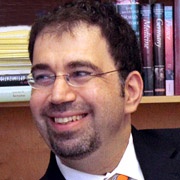
POLITICAL SCIENCE
3 Questions: Daron Acemoglu on the “dangerous situation” still facing the U.S.
The author of “The Narrow Corridor,” about the battle to sustain democracy, weighs in on the country’s political condition.

POLITICAL SCIENCE
Making voting easier for previously incarcerated people
People rarely vote after being incarcerated. Associate Professor Ariel White wonders what can be done about it.
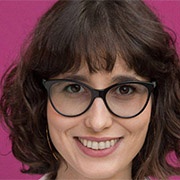
POLITICAL SCIENCE
New views of autocracy emerge from historic archives
Political science PhD student Emilia Simison has found that despotic regimes vary, and the move to democracy doesn’t necessarily guarantee policy change.

POLITICAL SCIENCE
How authoritarian leaders maintain support
Study finds public anticorruption campaigns bolster leaders, even when such measures lack tangible results.
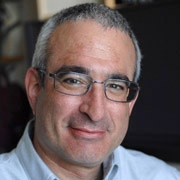
ECONOMICS
Joshua Angrist wins the 2021 Nobel Prize in Economic Sciences
Cited for work building the foundations of “natural experiments” in economic research, Angrist shares the Sveriges Riksbank Prize in Economic Sciences in Memory of Alfred Nobel with with David Card and Guido Imbens.

NEW FACULTY GALLERY 2021
MIT SHASS welcomes six new faculty.
Our new faculty bring an array of research interests and domain knowledge to the School, including: ethical questions about misinformation and lying; macroeconomics; economic theory; transnational power and civic media; the literature and thought of East Asia; and the politics of trade.
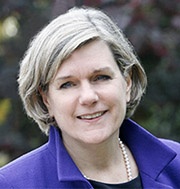
HONORS & AWARDS
MIT economist Nancy L. Rose receives the Carolyn Shaw Bell Award
The annual prize recognizes an individual who has furthered the status of women in the economics profession through example, achievements, increasing our understanding of how women can advance in the economics profession, or mentoring others.
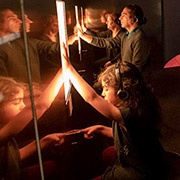
STEAM
Transformative truth-telling at the MIT Open Documentary Lab
The lab's artists and technology scholars are exploring representation and reality — and designing the future of storytelling.

ECONOMICS
Lighting the Path: Economics at MIT
The MIT Department of Economics works at the intersection of science, technology, and human behavior, using economic science to help address the world’s most pressing challenges. Across a wide range of disciplines and research areas, we’re deeply invested in finding solutions that work.
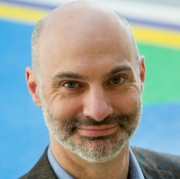
NEW ROLES
Agustín Rayo named interim dean of SHASS
Provost Martin Schmidt appoints the professor of philosophy and former associate dean to the role, launches search committee.
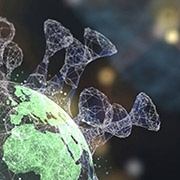
PANDEMIC
Webinar Series | History of Now: Plagues & Pandemics
In the spring of 2020, as people around the world confronted the daily reality of the Covid-19 pandemic, many wondered how previous generations navigated similar crises. At MIT, an interdisciplinary team of humanistic faculty explored this question in a course that broke ground as a live, free MIT class, held in an open public webinar format so that anyone who wanted to attend could do so, from anywhere in the world.
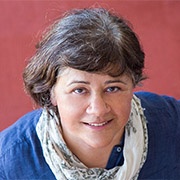
HONORS + AWARDS
Sabine Iatridou named David W. Skinner Professor of Linguistics
A leading scholar, ambassador for linguistics, and sought-after teacher, Iatridou impresses her colleagues with her keen insight and intuition about the most intricate linguistic patterns and her masterful grasp of crosslinguistic generalizations and exceptions.

SOLVING CLIMATE: HUMANISTIC PERSPECTIVES
Why do some people call climate change an “existential threat”?
The phrase can refer to a literal threat to humanity’s existence, but also to the danger that unchecked climate change can pose to many human cultures and our sense of place in the natural world. "Whether or not climate change becomes a literal extinction threat, it has already changed our relationship with the planet we live and depend on, which will forever alter the way we feel about human existence." — Commentary by MIT Philosopher Kieran Setiya

EVENT
A Video Celebration for our 2020 + 2021 Infinite Mile Award Winners!
Join us to watch the virtual video event on 14 July, 4-5pm.
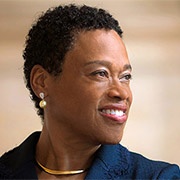
Melissa Nobles named MIT’s next chancellor
After six years as the Kenan Sahin Dean of MIT SHASS, during which she advanced research and education across the humanities, arts, and social science fields at MIT, Nobles, a Professor of Political Science, will move to a senior academic post overseeing student life at the Institute.
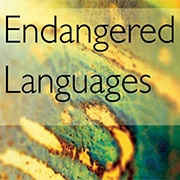
BASIC RESEARCH
Endangered Languages
Half the planet’s 6,000 spoken languages are now in danger of extinction. Why do we care so much about languages most of humanity will never hear?
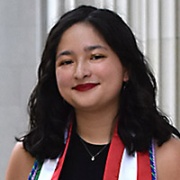
MEET THE MIT BILINGUALS
Lia Hsu-Rodriguez '21 | Anthropology + Biology
Health Care Equity
Hsu-Rodriguez's vision is to use her dual expertise in Anthropology and Biology in the public health and public policy sector to reduce healthcare inequality.

MEET THE MIT BILINGUALS
Salute to Bilingual Students | Class of 2021
Profiles of 31 of the outstanding MIT 2021 graduates who focused deeply on both humanistic and sci/tech fields reflect on their MIT education — and their visions for the future.
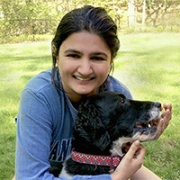
MEET THE MIT BILINGUALS
A Framework for Understanding the World: Natasha Joglekar '21
A CS + Biology major with a minor in Women's and Gender Studies, Joglekar found that her WGS coursework gave her powerful insight into the human factors that drive so many societal outcomes. “WGS studies helped give me a framework for understanding the world," she says, "in the same way my Physics and Math classes did."

HONORS AND AWARDS
Announcing the 2021 Levitan Teaching Award Winners
The James A. and Ruth Levitan Teaching Award, given annually by the MIT School of Humanities, Arts, and Social Sciences, honors the superlative teaching staff across the School. About the award, Dean Nobles says, "This prize honors instructors in our School who have demonstrated outstanding success in teaching our undergraduate and graduate students. These great educators, who are nominated by students themselves, represent the very best academic leadership in the School."
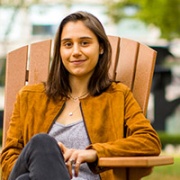
MEET THE MIT BILINGUALS
Kiara Wahnschafft '22 | Economics + MechE
Whether improving sanitation or addressing climate change, Wahnschafft is drawn to evidence-based methods for tackling social challenges.
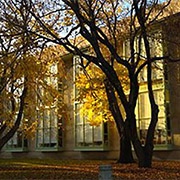
HONORS AND AWARDS
MIT SHASS names 36 extraordinary students as 2021 Burchard Scholars
The undergraduates selected for the competitive program enjoy a seminar series and conversations over dinners with distinguished faculty.

IN THE CLASSROOM
Inhabiting Science Fiction
Students in 21L.434 / "21st Century Science Fiction," taught by Assistant Professor Laura Finch, discover that the world-building of science fiction is not only a way to envision possible futures, but a powerful way to think about the world we currently inhabit.
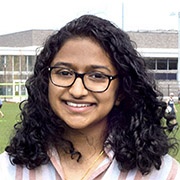
MEET THE MIT BILINGUALS
Anjali Nambrath '21 | Physics/Math + French & Theater
Nambrath says learning to see the world through a wide variety of lenses is crucial to success in her field. In physics, she explains, “the whole point is to find new ways of looking at the world. I think it’s super important as a human being to push the boundaries of knowledge, to find out more.”
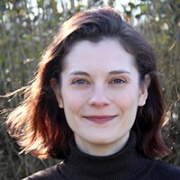
SOLVING CLIMATE
Caroline White-Nockleby, PhD student in MIT HASTS
Research to surface and address the socio-environmental complexities of renewable energy: "Renewables must be collected, stored, and transported; they require financing, metals extraction, and the processing of decommissioned materials. Energy access, mining, and waste deposition are material, geographically situated dynamics. Not everyone stands to benefit equally from renewable energy's potentials, and not everyone will be equally exposed to its socioenvironmental impacts."
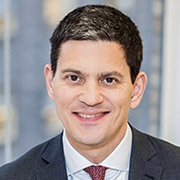
DEMOCRACY | HUMAN RIGHTS
Rt. Hon. David Miliband SM ’90 receives the 2021 Robert A. Muh Alumni Award
His award lecture proposes an "accountability agenda" to restore respect for human rights, democratic norms, and the rights of civilians in combat zones.
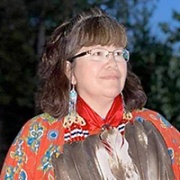
SOLVING CLIMATE
Two-Eyed Seeing
In this interview, Patricia Saulis, MLK Visiting Scholar and Executive Director of the Maliseet Nation Conservation Council, discusses drawing on both Indigenous and Western knowledge systems to develop more sustainable ways to live on the planet.

STRENGTHENING DEMOCRACY
The miracle and tragedy of the 2020 election
Professors Charles Stewart III, MIT, and Nathaniel Persily, Stanford
In a must-read analysis, two of the Nation's leading election administration experts discuss: how, during a pandemic, U.S. election administrators organized the most secure election in American history; the "big lie" that catalyzed violence at the Capitol; and current threats to U.S. voting rights and democracy.
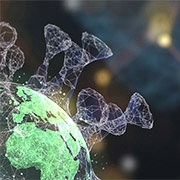
IN THE CLASSROOM | PANDEMIC
For the pandemic, MIT History opens a course to the public via a free, live webinar format.
Hundreds from around the world responded to the opportunity and joined MIT students in the weekly class, "History of Now: Plagues and Pandemic." The experimental webinar format also greatly expanded the scope of expertise available to students, bringing in speakers from fields ranging from microbial biology to economics.

U.S. HEALTHCARE SYSTEM
What has the pandemic revealed about the U.S. healthcare system — and what needs to change?
Seven MIT scholars see lessons and opportunities for U.S. healthcare
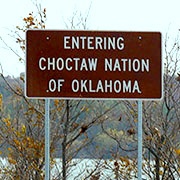
MUSIC AT MIT
MIT composer Charles Shadle releases a new work, "Choctaw Animals," honoring his Native American heritage.
Shadle is arguably the most visible living classical composer in the Choctaw tribe, and he does not want to be the last. Thinking of young Choctaw children in rural communities he says, “To some extent, I can say, you could be a composer too. Your voice can be heard.”

MAKING A JUST SOCIETY
Advancing social justice through music and media
It Must Be Now! explores subject matter that includes institutional racism; environmental, economic, gender, and health injustices; police brutality; and abolitionism.
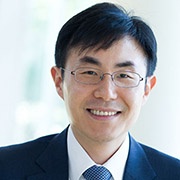
HONORS AND AWARDS
In Song Kim receives the 2021 Levitan Prize
New project by the inventor of LobbyView.org will advance trade theory and the ability of citizens to influence public policy-making.

DEMOCRACY
What must the U.S. do now to sustain its democracy?
In the aftermath of the insurrection at the U.S. Capitol, MIT political scientists and historians discuss how to strengthen U.S. democracy.
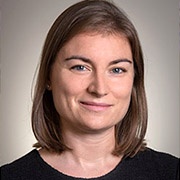
SOLVING CLIMATE
Clare Balboni | On Economics, Environment, and Policy
"There is tremendous and growing interest in environmental questions within economics. Economic models and methods can help to enhance our understanding of how to balance the imperative for continued growth in prosperity and well-being — particularly for the world’s poorest — with the need to mitigate and adapt to the environmental externalities that this growth creates."

STRENGTHENING DEMOCRACY
What’s Next? Challenges Ahead for the Biden Administration
A series of essays by MIT SHASS scholars, including: Melissa Nobles, Taylor Fravel, Vipin Narang, Dick Samuels, Elizabeth Wood, Barry Posen, Richard Samuels, and John Tirman.

DEMOCRACY
Starr Forum: Global Partnerships in a Time of Crisis
Experts discuss the need for democratic governments to create a contract for shared risks, including Covid-19, climate change, and war.
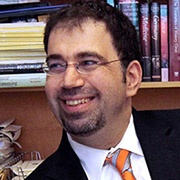
DEMOCRACY
The permanent struggle for liberty
Daron Acemoglu’s new book examines the battle between state and society, which occasionally produces liberal-democratic freedom.
